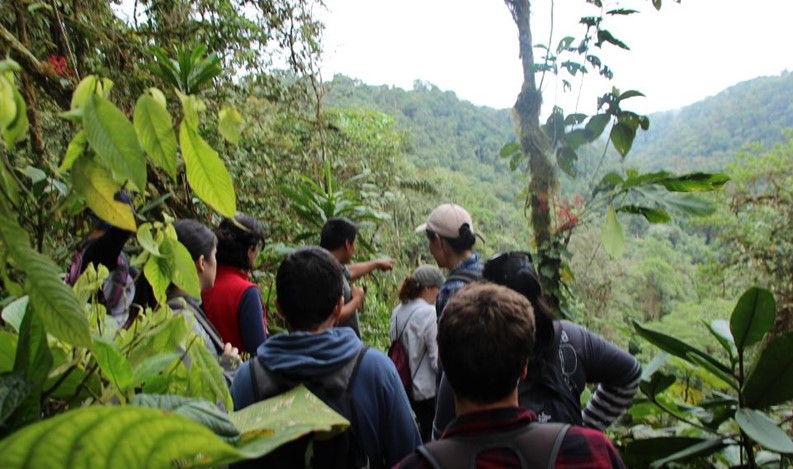Here are some ideas for your project proposal!
Following the various ongoing calls for proposals, VLIR-UOS conducted a short survey among Belgian non-governmental actors to collect their ideas for University cooperation for development in synergy/complementarity with their activities.
The result is a range of potential initiatives that aim to increase the impact of Higher Education for Sustainable Development (HE4SD) through synergy and complementarity.
Get inspired by these ideas blending various research questions with transversal themes (gender and protection of the environment)! If you are triggered by a topic, feel free to contact the initiating organisation mentioned. You can find the list of contacts here.
01. - Children's Rights: Develop tools to better accompany street children in Africa - together with Dynamo International
02. - Children's rights: Research on the current state of violence against children in Rwanda - together with Humanity & Inclusion
03. - Climate change: Youth engagement in climate-change action: understanding the profile of youth mobilized for climate justice - together with Plan International
04. - Education: Action-based research among school leaders involved in Professional Learning Communities - together with VVOB
05. - Education: Impact research on teachers’ Knowledge, Attitude & Practice regarding foundational literacy skills - together with VVOB
06. - Education: Qualitative research to further explore blended delivery of Continuous Professional Development - together with VVOB
07. - Education: Research for policy development on social inclusion in schools - together with VIA Don Bosco, Light For The World and Plan International
08. - Education: Research on the impact of the professional development trajectory on instructional school leadership - together with VVOB
09. - Education: strengthen measurement tools and techniques to monitor and evaluate gender-transformative learning outcomes - together with Plan International
10. - Entrepreneurship: Results and impact of various financing models to SMEs - together with Trias
11. - Health: Identify social and behavioral factors that affect human and animal health and its management (controlled surveillance) - together with VSF-B
12. - Health: Research into innovative rehabilitation/revalidation techniques adapted to the rehabilitation needs of the populations of Burundi - together with APEFE
13. - Health: Research on conservation and restoration of forests - together with Vietnam Museum of Nature
14. - Health: Research on Neglected Tropical Diseases (One Health perspective), Antibiotic resistance, emerging viral infections - together with ITM
15. - Health: Research on safe blood supply with RKV supported by Centre for Evidence-Based Practice (CEBAP) - together with RKV
16. - Human Rights: research on the situation of the exercise of civic space in Burundi - together with ASF
17. - Industry innovation: Follow up on study on the development of the extractive sector - together with ASF
18. - Natural disasters: Research on natural hazards and associated risks in Central Africa - together with Royal Museum for Central Africa
19. - Resilient Ecosystems: Research on the minimum conditions for water source protection and the effect of tree planting - together with Join for Water
20. - Rural development: Evaluate rural development initiatives and provide insight into their effectiveness - together with WWF
21. - Sustainable Agriculture and Food Systems: Research on oxo-biodegradable plastic and alternatives to pack potable water - together with Durabilis
22. - Sustainable Agriculture and Food Systems: Research on Stevia as an alternative sweetener in beverages - together with Durabilis
23. - Sustainable Agriculture: An analysis of the dairy value chain in Rwenzori sub-region for farmer economic empowerment and sustainability of the sector - together with VSF-B
24. - Sustainable Agriculture: Design and operationalization of a quality management system for the apiculture sector in Uganda - together with Trias
25. - Sustainable Agriculture: Research on trends and impacts of Highly Hazardous Pesticides and their use in Uganda - together with Broederlijk Delen
26. - Sustainable Agriculture: Transforming Small scale Subsistence Farmers (SSFs) into ecologically responsible growth-oriented entrepreneurs in Tanzania - together with Trias
27. - Sustainable cities: Develop value chains and micro-enterprises of non-timber forest products for the local communities in conservation and protected areas - together with WWF
28. - Sustainable cities: Involvement of diasporas in decentralized cooperation in Belgium and in Morocco - together with Echos
29. - Sustainable cities: Street social work from inclusion to decent work - together with Dynamo International
30. - Urbanisation and gender equality: What are the effects of urbanisation on gender equality? - together with VVSG
Click here to find even more ideas!


.jpg)